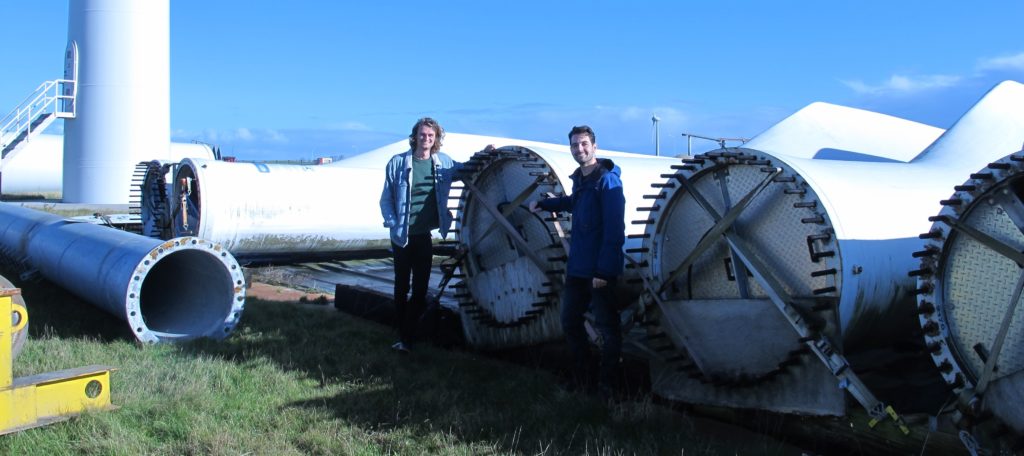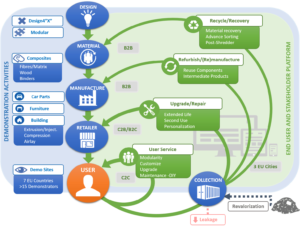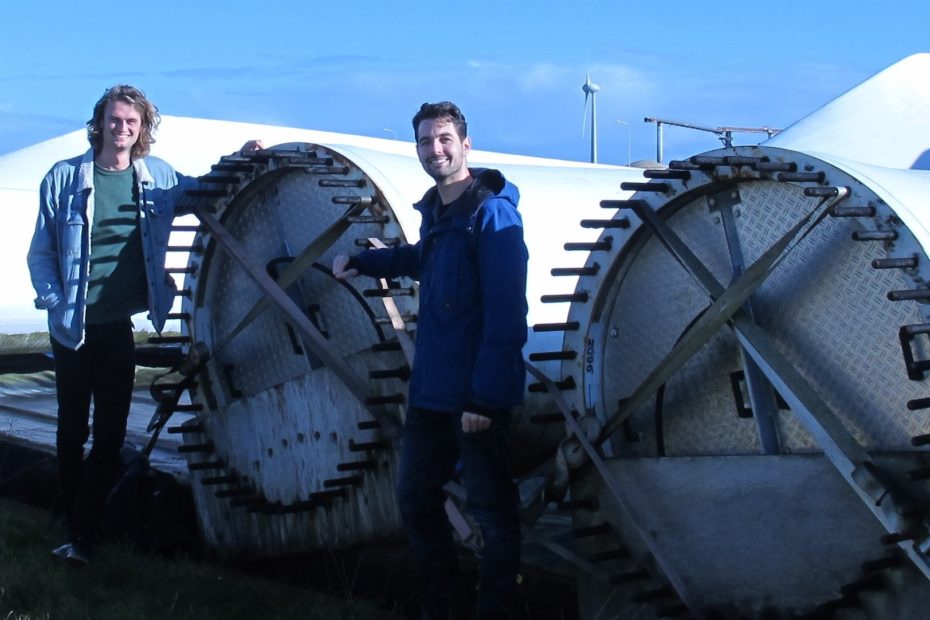In October 2017 I started at TU Delft with my PhD research “Design strategies for composites in a Circular Economy”. The research is embedded in Horizon 2020 project Ecobulk. My aim is to develop a set of strategies and tools, that can be used in the design of composite products for use and recovery in a circular economy.
Composites are a combination of two materials, usually a matrix and a fibre or particle fraction. Examples are fiberglass, used for boatbuilding and wind turbine blades, or carbon fibre reinforced epoxy which can be used to build beautiful solar cars. Short fibre filled thermoplastics are increasingly used in the automotive industry and for example for powertool housings. These composites provide mechanical properties that enable lightweight constructions, very beneficial for transport applications where weight savings usually directly relate to fuel savings.

Wind turbine blades are usually decomissioned after a service life of 20 years, but little suitable material recovery options are avialable.
However, a major drawback comes at the end of product life: recycling of materials, especially thermoset based composites, is difficult. If not impossible. Which leads to large amounts of material going to waste. Overconsumption of resources and accumulation of waste is showing to be one of the biggest challenges of these days.
In a Circular Economy, resources are kept in the loop: the goal is to achieve a zero-waste system. Through high quality reuse of products and materials, this leads to consumption within the limits of earth’s renewable supplies. I will approach this from the design perspective for composite materials: what has to be done in the intial design, to enable reuse and recovery of resources the end of use?

Recovery of products and materials in Ecobulk
The first step was to establish a baseline. Together with Granta, partner in Ecobulk, I wrote the Ecobulk baseline report about composites and industry status in the Circular Economy. The report can be downloaded from the deliverables section the the Ecobulk Website.
